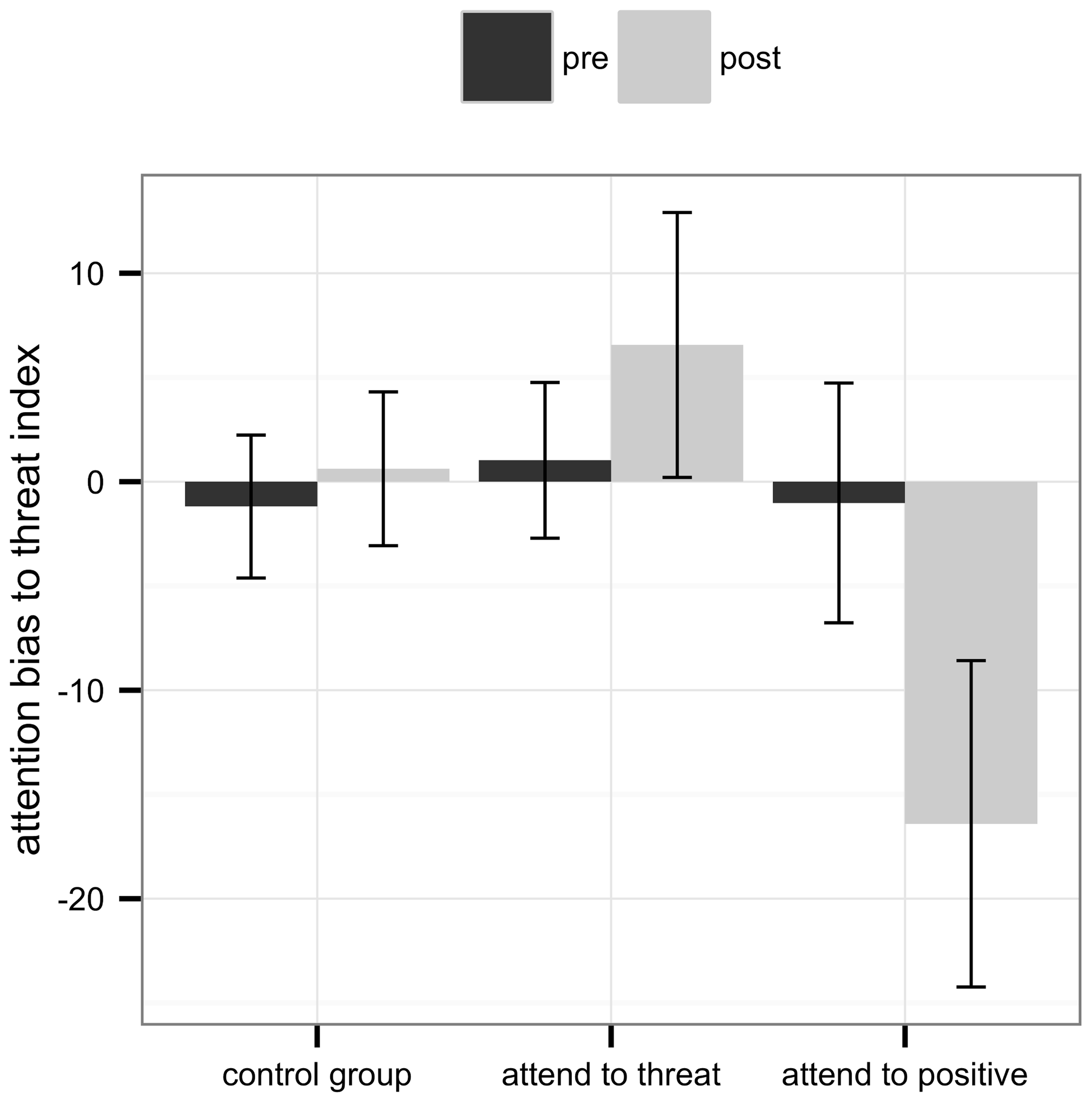New paper published today: Internet-Based Attention Bias Modification for Social Anxiety: A Randomised Controlled Comparison of Training towards Negative and Training Towards Positive Cues
Boettcher J, Leek L, Matson L, Holmes EA, Browning M, et al. (2013) Internet-Based Attention Bias Modification for Social Anxiety: A Randomised Controlled Comparison of Training towards Negative and Training Towards Positive Cues. PLoS ONE 8(9): e71760. doi:10.1371/journal.pone.0071760
Abstract
Biases in attention processes are thought to play a crucial role in the aetiology and maintenance of Social Anxiety Disorder (SAD). The goal of the present study was to examine the efficacy of a programme intended to train attention towards positive cues and a programme intended to train attention towards negative cues. In a randomised, controlled, double-blind design, the impact of these two training conditions on both selective attention and social anxiety were compared to that of a control training condition. A modified dot probe task was used, and delivered via the internet. A total of 129 individuals, diagnosed with SAD, were randomly assigned to one of these three conditions and took part in a 14-day programme with daily training/control sessions. Participants in all three groups did not on average display an attentional bias prior to the training. Critically, results on change in attention bias implied that significantly differential change in selective attention to threat was not detected in the three conditions. However, symptoms of social anxiety reduced significantly from pre- to follow-up-assessment in all three conditions (dwithin = 0.63–1.24), with the procedure intended to train attention towards threat cues producing, relative to the control condition, a significantly greater reduction of social fears. There were no significant differences in social anxiety outcome between the training condition intended to induce attentional bias towards positive cues and the control condition. To our knowledge, this is the first RCT where a condition intended to induce attention bias to negative cues yielded greater emotional benefits than a control condition. Intriguingly, changes in symptoms are unlikely to be by the mechanism of change in attention processes since there was no change detected in bias per se. Implications of this finding for future research on attention bias modification in social anxiety are discussed.
